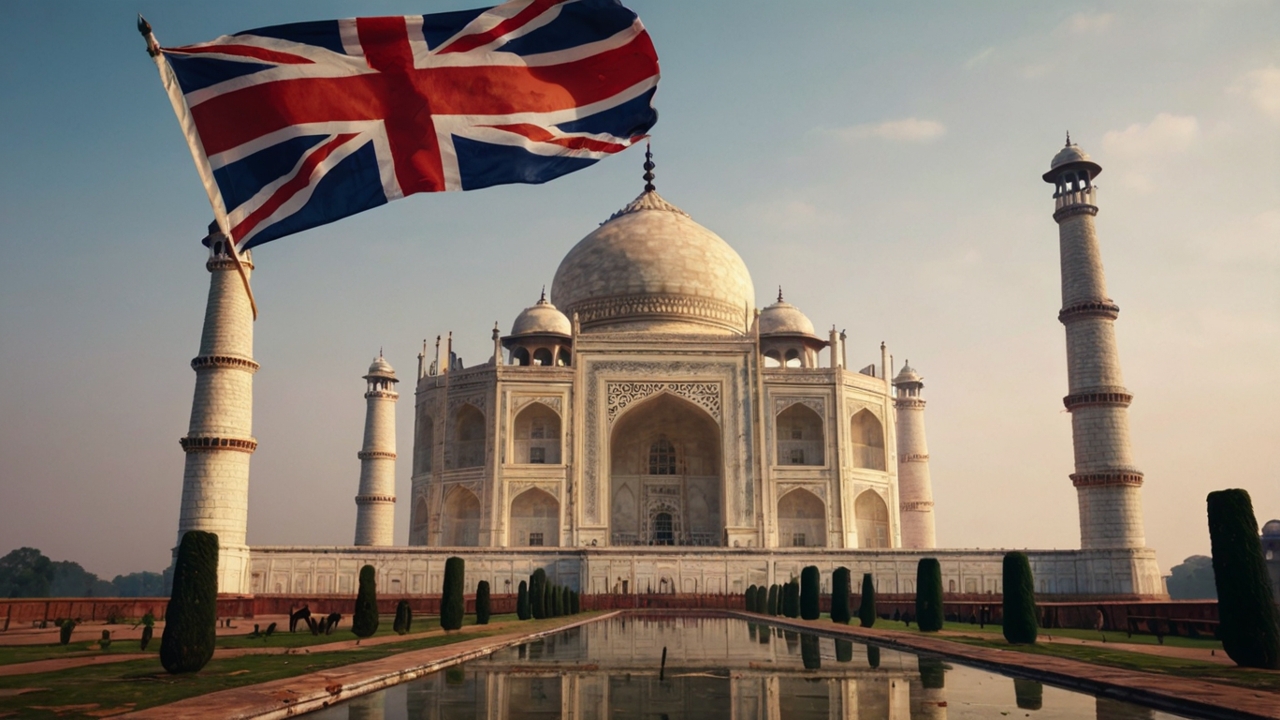Imagine a world where the British Raj in India never ended. This altered history concept delves into the profound economic, political, and cultural impacts of an India that never gained independence, forever altering the course of global history. This thought experiment invites us to explore how British colonialism in India would have shaped the nation’s future.
Economic Exploitation and Dependency
If India had remained under British rule, the economic landscape would have faced prolonged exploitation and resource extraction by the British. The British East India Company in India had already established a precedent for wealth extraction, and this would likely have continued unabated. The extensive drain on India’s wealth, from raw materials to agricultural produce, would have stifled local industries. British economic policies, favoring their interests, would have prevented the growth of indigenous businesses and technology. Infrastructure development, critical for economic advancement, might have lagged significantly, leaving many regions underdeveloped. This dependency on British imports would have hampered the growth of a self-sufficient economy, keeping technological and industrial progress at bay. Additionally, the agrarian economy would have faced further challenges due to exploitative practices, leading to persistent poverty and limited upward mobility for a large section of the population.
Social and Economic Inequalities
The continuation of colonial rule would likely have exacerbated social and economic inequalities, with British policies favoring a small elite while marginalizing the broader population. Wealth disparities would have deepened, significantly affecting millions of Indians. Social structures would have remained rigid, and the lack of investment in education and healthcare could have perpetuated a cycle of poverty. These inequalities would have hindered social development, limiting opportunities for upward mobility. The agrarian economy, already strained, might have faced further challenges due to exploitative practices. Furthermore, underdeveloped infrastructure and technology would have constrained India’s ability to modernize and achieve economic self-sufficiency, leaving it economically dependent on Britain and struggling with persistent social issues.
Political Landscape
If India had remained under British rule, its political landscape would have been significantly different. The struggle for independence fostered a sense of national identity and unity among diverse groups. Without this movement, India’s political dynamics might have been dominated by continued colonial policies, which could have led to prolonged resistance and civil unrest. British rule often favored certain elites, potentially exacerbating regional and social divides. The absence of self-governance would have stunted the development of democratic institutions and practices, delaying India’s progress toward a stable, representative government. Additionally, the continued imposition of British cultural norms and legal systems could have further marginalized local traditions and practices, impacting India’s social fabric deeply.
Social and Cultural Impacts
Socially, the impact of prolonged British rule could have been profound. The continuation of colonial policies would likely have perpetuated systemic inequalities, affecting education, employment, and social mobility. The struggle for independence united various communities and fostered a sense of collective identity, which might have been stifled under ongoing colonial rule. British cultural influences could have further entrenched social hierarchies and norms, hindering the progress of social reforms. The lack of investment in public services such as healthcare and education would have contributed to persistent poverty and limited opportunities for large sections of the population. Moreover, the suppression of local customs and languages in favor of British norms could have eroded India’s rich cultural diversity, leading to a loss of traditional knowledge and practices.
Cultural Landscape
Prolonged British rule would have deeply affected India’s cultural landscape. The continuation of colonial policies would likely have led to an increased imposition of British cultural norms, potentially eroding local traditions and languages. The British education system might have further entrenched Western ideals, marginalizing India’s diverse cultural heritage. Traditional arts, literature, and practices could have faced suppression or been overshadowed by British influences. This cultural dominance would have impacted social structures and identities, leading to a gradual loss of cultural diversity. The rich tapestry of India’s regional customs and languages might have been replaced with a more homogenized colonial culture, affecting the nation’s unique cultural identity.
Alternate History Scenario
In an alternate timeline where India remained under British rule, numerous significant historical events could have unfolded differently. For instance, the partition of India in 1947 might never have occurred, potentially preventing the creation of Pakistan and altering the geopolitical landscape of South Asia. The independence movements in other British colonies might have been affected by the prolonged control over India, possibly delaying or changing the nature of their struggles. Additionally, the global influence of the British Empire could have been sustained longer, impacting decolonization efforts worldwide. This extended colonial period might have also influenced World War II and the Cold War, with India playing a different role as a major British stronghold in Asia, altering military strategies and alliances.
Watch the Video
For a deeper dive into the history of the British Raj in India and to see how these dynamics shaped modern India, be sure to check out our detailed video. Discover more about the impacts of British colonial rule and the significant events that led to India’s independence.



